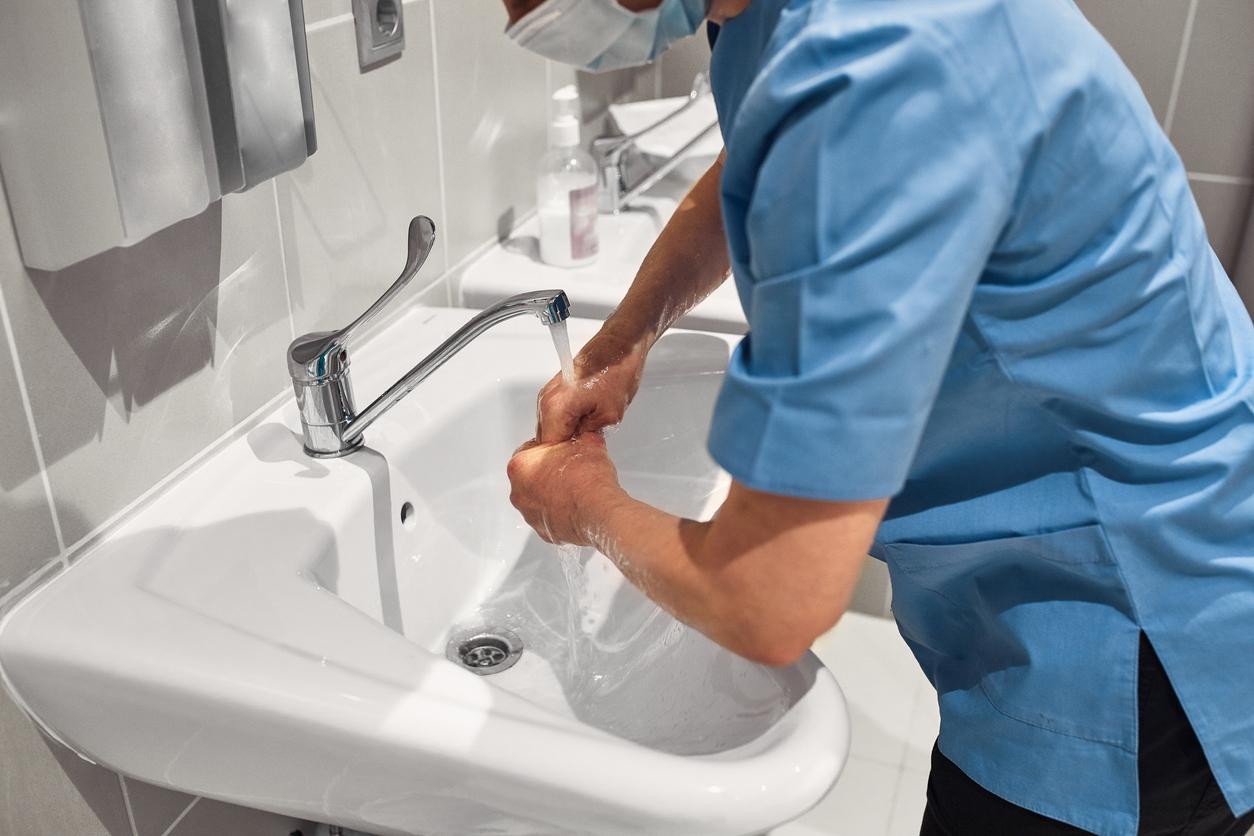In South Africa, 6 newborns died from the Klebsiella pneumonia bacteria, which can be responsible for respiratory infections, intestinal infections or even urinary tract infections.

In South Africa, 6 newborns have died from Klebsiella pneumonia, a rare infection contracted in the maternity ward of Thelle Mogoerane hospital, in the township of Vosloorus.
The Klebsiella pneumoniae bacteria can be responsible for respiratory infections (pneumonia, lung abscess, pleurisy), intestinal infections or even urinary tract infections. Resistant to common antibiotics, it can be fatal if the patient’s immune system is weakened.
132% occupancy rate
“We can no longer accommodate newborns there,” said South African Minister of Health Aaron Motsoaledi, who attributes the infection of babies to overcrowding in health facilities in the region. Located in the east of the largest city in the country, the Thelle Mogoerane hospital has been fighting since July against a series of contaminations by the bacterium Klebsiella pneumonia, unable to apply normal infection prevention measures. Those affected have been transferred to other hospitals. Overwhelmed, maternities and other neonatal services in this region have an occupancy rate of 132%.
Transmission of Klebsiella pneumoniae strains occurs manually. It is found in our digestive tract, water, soil and dust. For reasons still unknown, these community infections are more frequent and more serious in Asia, where the strains are the most virulent. In the West, Klebsiella pneumoniae is mainly responsible for nosocomial infections (bronchopulmonary, urinary tract infections, bacteremia, post-traumatic or post-chrurgical meningeal infections).
19 deaths at the Nice University Hospital
In 2013, more than 75 people were affected by the Klebsiella pneumoniae bacteria within the Nice University Hospital. 19 deaths were deplored. “It is a bacterial infection which causes a very high mortality rate”, explained Professor Didier Raoult, from the microbiology laboratory of Marseille hospitals.
Nosocomial infections still remain a public health issue in France today. Around 750,000 patients contract one during a stay in the operating room (they were 16% in 2017). However, according to an IPSOS survey carried out for Johnson & Johnson Medical Devices, in partnership with the French Society of Hospital Hygiene (SC2H), two in three French people consider themselves to be poorly informed.
According to the results, more than 9 out of 10 French people know the name of post-operative infections. However, only one in 3 French people questioned had a fair estimate of the frequency of surgical site infections (SSI), established between 0 and 5%, while they tend to be overestimated. This result indicates that only 28% of the people questioned consider themselves well informed about these post-operative infections.
.
















